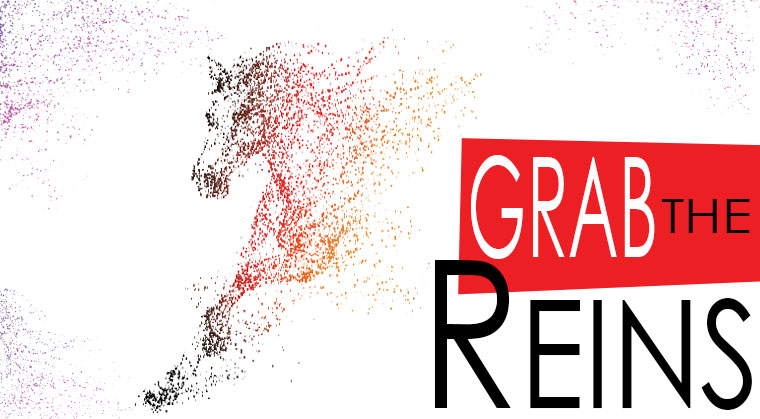Grab the Reins: Chapter 18


M y days as a participant in workshops and classes were behind me. Now I was lecturing in Retorno’s prevention and empowerment programs giving therapeutic horseback-riding lessons and facilitating groups both on and off horses.
One particular group of eight women consisted of present and former Retorno staff outpatient clients from Mifgashim and family members of alumni. This was the seventh in a series of ten empowerment horseback-riding workshops and the topic was Step Six in which we declare our readiness to “have G-d remove all these defects of character.”
We rode toward a carob grove just outside Kibbutz Tzora along a quiet fairly straight dirt road with few distractions for the horses.
Eventually we stopped and tied the horses to the trees. They munched grass and weeds while we sat in a circle on a carpet of green enjoying sweet chewy carob pods. “In Step Four ” I began “we got rid of our resentments and learned what some of our character defects are. In Step Five we shared those flaws with someone else learning as we did to accept ourselves even with those defects. Now in Step Six we’re actually ready to have our character defects removed.”
“What do you mean have them removed?” Shira said. “We have to get rid of them. No one’s going to do it for us.”
“Actually ” I said “that’s not true.”
I certainly had everyone’s attention.
“Why do I act in a certain way over and over again?” I asked.
“Because you learned to act that way ” Gitty said. “When you were young you were trained. Programmed.”
“True ” I said. “But do you still do everything you did when you were young?”
No one thought so.
“Why ” I asked “do we continue with certain behaviors but not others? Because they served us well at some point in our lives and they continue to serve us — or at least we think they do.” I looked around the circle. “Who can share with us a character flaw they’d like to change?”
“Me ” Elisheva said quickly. “I’m a worrier.”
“About everything? Or specific things?”
“Everything really but I worry like crazy about my family.”
“Can you give us an example?”
“My daughter Hodaya.” Elisheva had previously told us that Hodaya had been a resident in Retorno’s women’s program. “She’s clean for almost two years now. Last week she was offered a great job in Tel Aviv but it’s close to many of her old friends. Her using friends. I’m so worried she’s going to fall.”
“That’s certainly understandable ” Shira said.
“Of course it is ” I agreed. “But will worrying help Hodaya make a healthy decision?”
“No. But I still can’t help worrying.”
“Let’s look at that. You worry because some part of you on some level thinks it will help.”
Elisheva shook her head. “I know it won’t but I just can’t help it.”
“What’s the payoff?” I asked.
“Payoff?”
“There’s some gain here real or imagined. What do you gain by worrying?”
“A headache. Heartache.”
“So you gain emotional turmoil. There’s no actual practical positive gain for you.”
Elisheva sighed loudly. (Excerpted from Family First Issue 554)
Oops! We could not locate your form.


